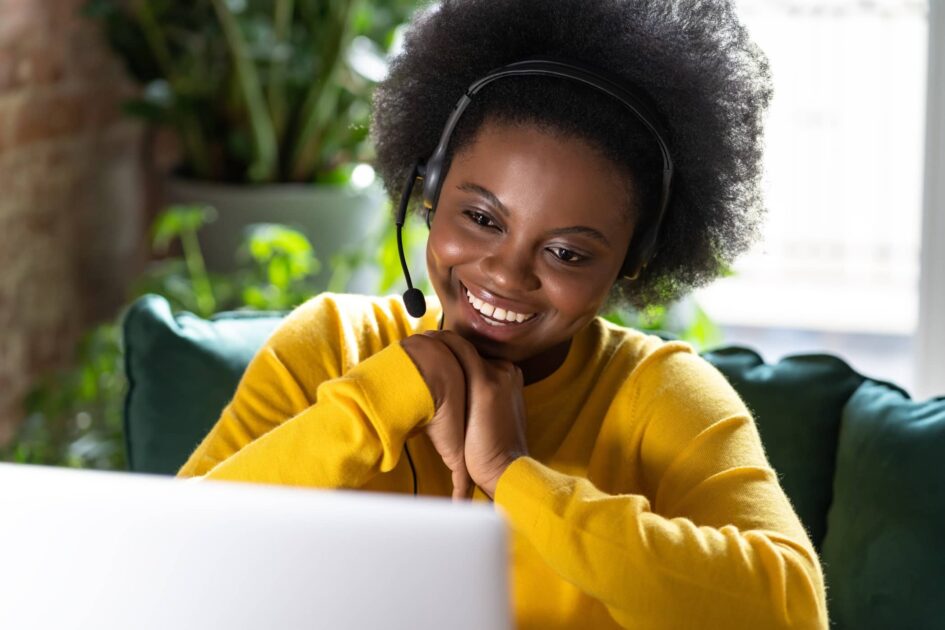What to prepare before a job interview
Being prepared ahead of your interview will help you to feel more confident

Job interviews can be a stressful experience. One way to reduce stress is to prepare for the interview to the best of your ability. You will have been chosen to interview on the basis of your CV, which means that the company already sees potential in you and is impressed by your previous experience. Try to take confidence from this and bring this confidence with you into the interview.
Preparing for a job interview
On the day of the interview, you might be nervous and this is completely normal. It’s a good idea to have everything prepared well in advance.
What you should bring
Check in advance to see if you have to bring anything with you to the interview. Ask about the structure of the interview and find out if you will need to have a presentation prepared for the day.
Make sure to have any necessary documents ready such as:
- A copy of your CV
- Application forms
- Exam or achievement certificates
- A work portfolio
- Reference letters
Practice the interview
Practice interview questions at home. If you are in college, there may be a career guidance counsellor who will run interview prep meetings. These can help you build confidence in your interviewing skills. It’s also a good idea to prepare questions to ask the interviewer as they may ask you if you have any at the end of the interview. Do some research on the company beforehand to understand their background and values and make sure to ask questions that cannot be answered on their website.
Preparation for the interview is crucial. It is important to be able to talk about your strengths and weaknesses, why you want to work for this company, why you want this role in particular, and what you can add to their workforce. You also need to know about the company, what it does and who its customers or audience are.
If you know the job and its requirements, and you know how your abilities and experience will allow you to meet these requirements, you will likely be ready for the majority of the questions you will be asked. If you are well prepared, you will be more likely to talk confidently rather than if you try to memorise answers. However, it is a good idea to have certain points memorised so that you’re ready to respond. Writing down these points and reviewing them before the interview can be very helpful.
Competency-based interviews involve questions that aim to find out how you have used specific skills in your previous experience. There has been an increase in competency-based interviews in the last few years. To prepare for this type of interview, find examples of potential questions online and come up with a good variety of answers that show how you have used specific skills. For example, you can prepare practical examples which show the interviewer:
- What do you think are your greatest achievements
- An example of when you used your initiative
- When you accomplished something you think of relevance to the job position
- A time you worked as part of a team
- A time when you resolved a conflict
Organise your outfit
Prepare your outfit for the interview a couple of days in advance so that you feel comfortable and confident in the clothes you will be wearing during the interview. By having an outfit ready early rather than waiting until the day of the interview to find something, you will also avoid any last-minute panic. If you are not sure what to wear, ask in advance what the dress code will be.
Make sure you eat and sleep well
The best way to ensure you are alert for the interview is to make sure you get a good night’s sleep the night before. Try to go to bed early if possible. If you are feeling nervous about the interview and sleeping is difficult, read our article on ten ways to improve your sleep. Having a nutritious breakfast and drinking plenty of water before an interview will help you to stay energised and focused throughout. However, if you are already feeling nervous, it might be a good idea to skip the morning coffee as caffeine can increase this. Choose water or non-caffeinated teas such as camomile instead.
It’s also a good idea to bring a bottle of water to the interview. This will allow you to clear your throat before the interview and will ensure that you stay hydrated.
Going to the job interview
If you have to travel for an interview, it is a good idea to give yourself plenty of time to get to the location.
Getting there
It is easy to get flustered on arrival, so being prepared about where you are going and who you are meeting can help to calm your nerves. Make sure to bring your phone and charger so that you won’t be left stranded if your phone dies while looking for directions.
Bring information about the interview with you such as:
- How to get there
- Contact phone numbers at the company
- The name of who you are to ask for once you arrive
Give yourself plenty of time to arrive at the interview and try to be there about ten minutes before it starts. Make sure you leave plenty of time for traffic or delays. Arriving early gives you time to get comfortable beforehand, and will help you to make a good first impression.
If you have never been to the location of the interview before, it might be a good idea to go there a couple of days in advance so you won’t have to search for the place on the day.
Arriving for your interview
Once you arrive, tell the receptionist (or whoever is there to greet you), your name and who you are supposed to meet. You may have to wait with other people interviewing before your meeting starts. Try to be friendly to everyone you meet. Many potential employers will also be interested in how you treat others and may ask the opinions of receptionists or security staff.
Remember:
- Try not to be intimidated by others in the waiting area
- Focus on your own preparation
- Run over key points you hope to make in the interview
- Turn off your mobile before the interview starts
- Use the bathroom if you need to
- Try to stay calm
Virtual interviews
Video interviews are becoming a common part of the hiring process. While some of the advice above still applies, there are certain things to keep in mind when doing a virtual interview.
How to prepare for a virtual interview
If you are asked to do a virtual interview for a job, there are certain things you can do to prepare in advance:
- Find a quiet, comfortable and well-lit place to do your interview where you are unlikely to experience any interruptions
- Position your webcam so you have a background that is free of clutter or distractions
- Check that your webcam and audio is working properly by practicing a video call with a friend or family member
- Check that your internet connection is working
- Turn your phone on silent and close any unnecessary tabs or applications on your computer
- If you are asked to take part in the interview using a specific platform such as Skype, make sure you know how to access it and whether you need to set up or log in to an account
- Practice looking directly at the camera when answering questions
Doing the interview
Once you enter the interview take some deep breaths and remember that you have prepared for this interview so you can be confident in your ability.
Body language is important so try to smile, make eye contact and shake hands when you meet the interviewer. Always have at least one question for the interviewer at the end. This shows genuine interest. An example is to ask “If this interview goes well and I get the job, what would you like to see me achieve within the first six months?” Once the interview is finished, always thank the interviewer for their time.
It is quite normal to doubt yourself after an interview. If you finish your interview and are unhappy with how it went, try not to beat yourself up about it. Instead, use your experience as an opportunity to learn. Ask yourself what you would do differently to prepare next time, and how you might answer any difficult questions in future.
Need more information?
We are here to answer your questions and talk through your options. Our online chat service is for 16 to 25 year olds and is available Monday to Friday, 4pm to 8pm. Chat to us now about your situation.
- Chat now to a trained Youth Information Officer
- Or leave us a message and we will email you back






